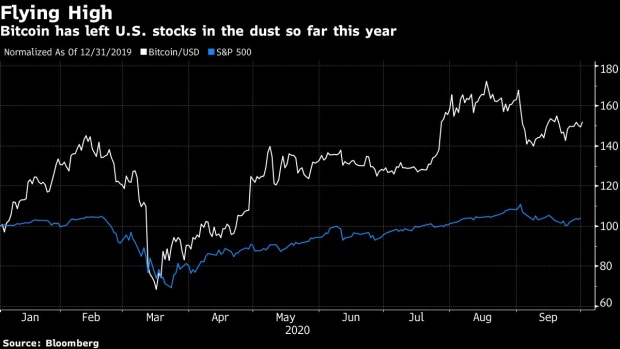Oct 1, 2020
Cryptocurrency Tax Guidance Leaves Big Holes Worldwide, PwC Says
, Bloomberg News

(Bloomberg) -- Cryptocurrency investors face a tricky and fast-changing tax landscape worldwide with sparse guidance in many areas, according to a new report from PwC.
Specific tax guidance “is an essential building block” to help institutionalize digital currencies, PwC Global Crypto Leader Henri Arslanian said. But there are some areas that are lacking, like in decentralized finance or DeFi, and potential pitfalls. Crypto assets are usually viewed as a type of property, which can lead to a tax charge on disposal. That’s “a major impediment to mass adoption of many crypto assets as a means of payment,” PwC said, unless technology solutions can be found to make things easier for users.
“While there is currently a lack of guidance, the situation is moving quickly,” said Peter Brewin, Tax Partner at PwC in Hong Kong. “Tax authorities and policy makers are still learning about how much of the industry works.” He added, “We expect the rate of change in the tax landscape to be as fast as it is for the crypto industry over the coming years.”
Crypto is still a volatile, experimental area, but has been maturing as more investors seek out alternative assets and established exchanges offer products such as futures and options. Though crypto and the underlying blockchain technology have strong roots in the idea of assets free from governmental control or interference, countries have been paying more attention to such holdings as they get traction.
“If there are any investors that assumed that the tax authorities have no idea what is happening ‘on-chain,’ they need to think again,” Brewin said.
Read more: Crypto Eclipsing Gold as This Year’s Top Asset on DeFi Mania
The report also contains the new PwC Crypto Tax Index, which ranks jurisdictions based on how comprehensive their guidance is for holders. Liechtenstein came out on top this year, with Malta, Australia, Switzerland, Singapore and Hong Kong rounding out the highest rankings. Still, very few jurisdictions have issued guidance on topics like crypto borrowing and lending, DeFi, non-fungible tokens, tokenized assets and staking income, PwC said.
“As this is such a new industry there is still a bit of a blank slate when it comes to tax policy,” Brewin said. “By highlighting what different jurisdictions are doing we can start conversations that can lead to better laws being developed in this area.”
©2020 Bloomberg L.P.





